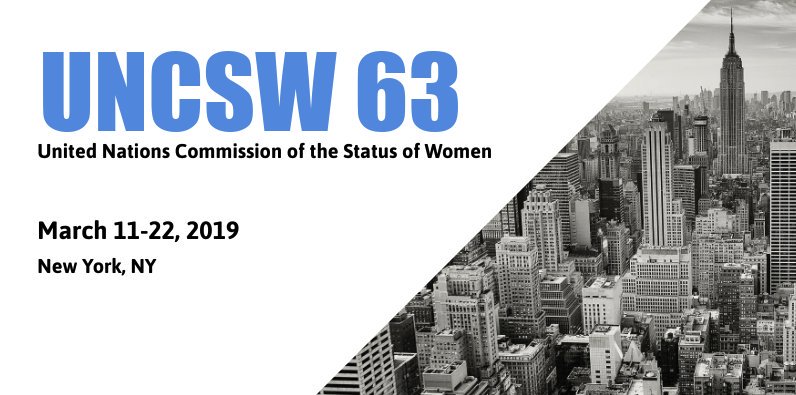Every year, thousands of women’s rights activists from around the world converge on UN Headquarters in New York to push world leaders ever closer – inch by inch – to realizing the vision of women’s full and equal participation. This year’s 63rd session on the Commission on the Status of Women paid special attention to Social Protection.
Social Protection is one of those extremely important issues to women leaders that The Hunger Project has supported in villages around the world. It is defined as “set of policies and programs designed to reduce poverty and vulnerability by promoting efficient labor markets, diminishing people’s exposure to risks, and enhancing their capacity to protect themselves against hazards and interruption/loss of income. Social protection consists of five major elements: (i) labor markets, (ii) social insurance, (iii) social assistance, (iv) micro and area-based schemes to protect communities and (v) child protection.”
Grassroots women leaders are passionate defenders of the most marginalized members of their already marginalized communities: Widows who have been denied pensions because of corrupt beneficiary lists. Women who are harassed with impunity on farms, on the streets, in garment factories and in their homes. Girls kept out of school and forced into child labor. Take the most horrifying of the #MeToo stories you’ve heard and multiply by the hundreds of millions of girls and women exploited with little or no chance of gaining justice never mind protection.
The Hunger Project and the Movement for Community-led Development helped organize two events that emphasized the critical role of women’s leadership in community-led strategies to halt exploitation and ensure social protection in settled communities (on March 15 – link) as well as in the growing migrant populations across our world (March 12 – link).
Perhaps the most moving moment of these events was when Maurice Bloem quoted from the poem “Home” by Warsan Shire. You can hear the poet herself read it below. It is highly relevant to the painful period our world is going through today.
Concurrent to our events, in the main governmental negotiations of the Commission, world leaders agreed to a 51-point set of conclusions that reaffirm “reaffirms that the promotion and protection of, and respect for, the human rights and fundamental freedoms of all women and girls, including the right to development, which are universal, indivisible, interdependent and interrelated, are crucial for the full and equal participation of women and girls.” The Hunger Project has long recognized that integrated approaches are critical to address the multiple burdens on women, and the Commission conclusions call for integrated approaches no less than five times.


